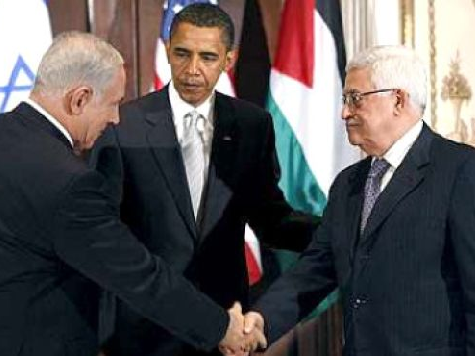The Obama administration has had a profound effect on the U.S.-Israel relationship, with implications for the future of the region as a whole. Overall, President Barack Obma has overseen the emergence of a more unstable and dangerous environment for Israel (and the U.S.), and the erosion of traditional bipartisan support for Israel at home. Yet he has also encouraged Israel–however inadvertently–to take more responsibility for its own fate.
There are five ways in which the Obama administration has affected Israel–four negative, and one positive. The first negative way emerged early in Obama’s presidency, when he set out to pressure Israel into making concessions, challenging the Israeli government in public while setting new policies against recognition of Israeli legitimacy in any territory in the West Bank, including Jerusalem. That made peace more difficult by resetting Palestinian expectations.
The second negative way has been the gradual acceptance of Iran’s emergence as a nuclear power, and the adoption of a weak version of “containment” as the American policy towards Iran in all but name. Not only did Iran secure U.S. acceptance of its nuclear enrichment, but it has now backed out of the Geneva deal and will argue for better terms. Obama refused to apply pressure to the regime–just as he gave it time to regroup in 2009 amidst democracy protests.
The third negative aspect of President Barack Obama’s policy towards Israel has been the destabilization of the Middle East as a whole through a military and diplomatic withdrawal that gave up strategic gains and created a power vacuum. Obama abandoned traditional U.S. allies in the region–not just those doomed to fail, like Egypt’s Mubarak, but more stable allies–and has allowed Iran to emerge as a regional power in full, stretching across Iraq and Syria.
Fourth, President Obama legitimized international institutions that exist almost entirely to attack Israel, such as the UN Human Rights Council. (Many of the same bodies disproportionately attacking the U.S., albeit significantly less.) There has been some pullback in recent months from the UN partly because of its dysfunction but also because the Obama administration has abandoned its earlier principles of stern multilateralism over issues such as Syria and Iran.
The fifth aspect of Obama’s policy towards Israel is the positive one. He continued existing work on joint missile defense technologies and other areas of security cooperation. And in early 2013, he visited Israel, going further than any president had before him in expressing symbolic support for Israel–visiting the military cemetery on Mount Herzl, for example. That visit went some way towards dispelling the notion that Obama was “anti-Israel”–even if his policies had that effect.
Yet support for Israel in the U.S. is undoubtedly weaker because of Obama. He has weakened what was once a bipartisan consensus of support for Israel, supporting left-wing alternatives (“J Street”) to pro-Israel organizations and undermining attempts among pro-Israel Democrats to marshal opposition to some of his more damaging policies. In future there may also be less support for foreign aid to Israel, as Republicans pare back Obama’s profligate federal budgets.
Ultimately, Obama sees the Israeli-Palestinian conflict in terms of “fairness”–not human rights, or national interest–and he believes aggression against America can be prevented by pulling away from the Middle East. The result is that Israel faces more risks, and has less support, than ever before. The silver lining is that Israel can now choose a more independent course, both in military and economic affairs. It is a more treacherous path, but perhaps a more rewarding one.

COMMENTS
Please let us know if you're having issues with commenting.